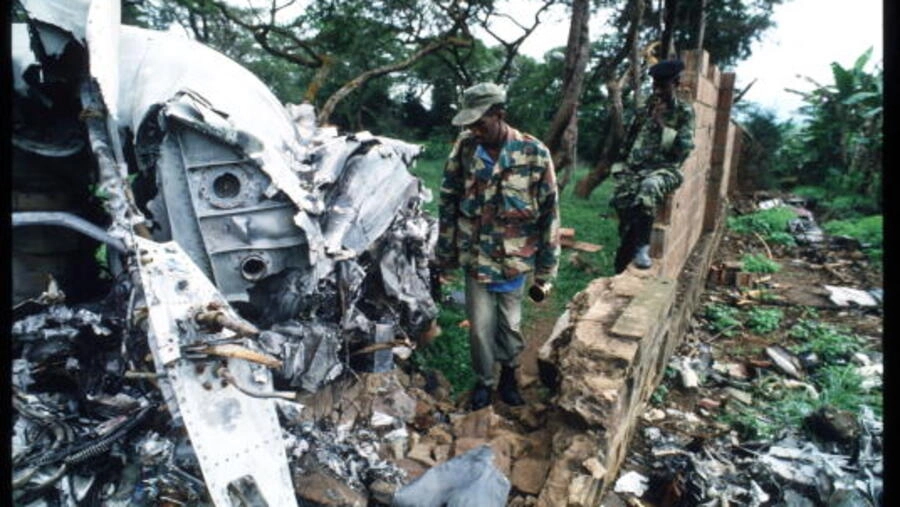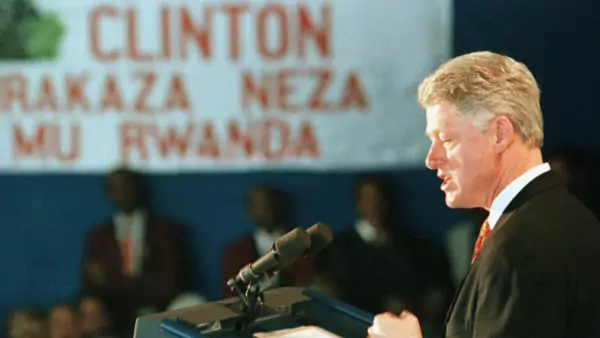Analogia Malenga
JF-Expert Member
- Feb 24, 2012
- 5,011
- 9,879
Felicien Kabuga (84) ni mmoja wa Rwanda anayetuhumiwa kufadhili mauaji ya Rwanda. Ameishi Asnieres-sur-Seine, Ufaransa kwa jina feki ili kuficha utambulisho akiwa na watoto wake
Kabuga anashutumiwa kwa kufadhili wanamgambo wa Interahamwe, Mwaka 1994, yalipotokea machafuko nchini Rwanda na kuua takribani watu 800,000
Polisi wamesema katika harakati za kujificha ameishi Ujerumani, Ubelgiji, Kongo, Kenya na Uswizi.
Muendesha mashataka wa Mahakama ya Uhalifu, The Hague, amesema kukamatwa kwa Kabuga kuwakumbushe wahalifu wote kuwa mtuhumiwa anaweza kukamatwa hata akijificha kwa miaka 2
===
French police arrested one of the last key suspects sought over the Rwandan genocide on Saturday, prosecutors and police said.
Felicien Kabuga, once one of Rwanda's richest men and accused of financing the genocide, was living under a false identity in the French capital's suburbs, the public prosecutor's office and the police said in a joint statement.
The operation, carried out at dawn, resulted in the arrest of a fugitive "who has been sought by the judicial authorities for 25 years", the statement said.
Around 800,000 people -- Tutsis but also moderate Hutus -- were slaughtered over 100 days by ethnic Hutu extremists during the 1994 genocide.
The statement said Kabuga, aged 84, had been living in Asnieres-sur-Seine north of Paris and had been hiding with the complicity of his children.
Kabuga is accused of creating the notorious Interahamwe militia that carried out massacres in the 1994 genocide.
He also helped create the equally notorious Radio-Television Libre des Mille Collines that incited people to carry out murder in its broadcasts.
"Felicien Kabuga is known to have been the financier of the Rwandan genocide," it said, adding that he had spent time in Germany, Belgium, the Democratic Republic of Congo, Kenya and Switzerland.
A top UN prosecutor welcomed the arrest, saying it showed that suspects would be brought to justice for crimes in the 1994 genocide.
"The arrest of Felicien Kabuga today is a reminder that those responsible for genocide can be brought to account, even 26 years after their crimes," said Serge Brammertz, chief prosecutor of the Mechanism for International Criminal Tribunals in The Hague.
AFP
Zaidi soma:
1). Kabuga arrested! - JamiiForums
2) Felician kabuga ashitakiwa bila yeye kuwepo mahakamani (hajakamatwa) - JamiiForums
3) Ukweli kuhusu Felicien Kabuga utaleta shtuma dhidi ya serikali ya Kenya. - JamiiForums
4)Félicien Kabuga: Mnyarwanda aliyewatesa majasusi wa Kifaransa kwa miaka 26 - JamiiForums










